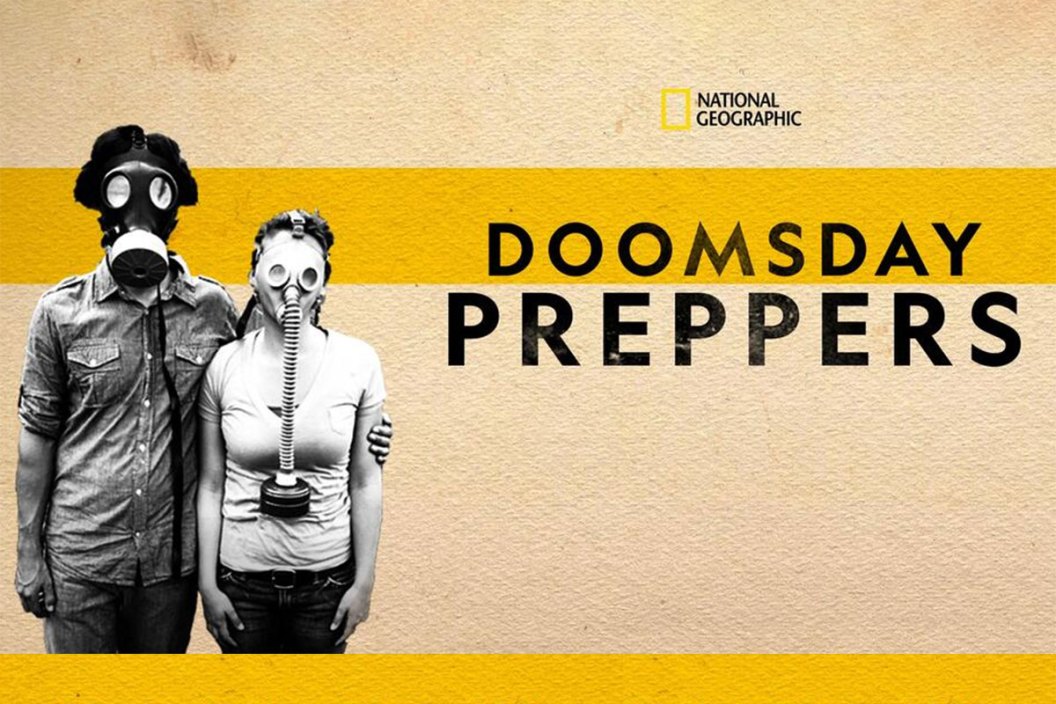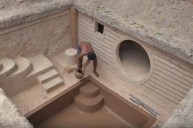How much do you know about "Doomsday Preppers?"
"Doomsday Preppers" was an American reality TV series that aired from 2011 to 2014 on the National Geographic Channel. For four seasons, American viewers got to see what it was like for those people in the world that believe we're all doomed, but not so much that they can't do something about it.
Survivalists fearing an apocalyptic event or an end of the world scenario have been vigorously preparing, or "prepping," their lives for some time. Natural disasters? Nuclear attack? They believe some big event is imminent, and they'll be ready for it.
But before the show, this corner of societal beliefs was less known, and certainly didn't have a spotlight quite like a major cable television network can provide.
The level and quality of the preparations for each person on the show were graded by a consulting company called Practical Preppers. They analyzed what they could, and made recommendations where necessary.
The level and scope of survival situation possibilities is vast, and no one really knows what the real "end times" might look like. Economic collapse, civil unrest, or even an electromagnetic pulse from a solar flare that could knock out the electrical grid could all wreak havoc. The show focused on what certain people were doing in the event of such drastic events.
In 2020, with all our attention on the coronavirus pandemic, United States citizens from Oregon to New York could feel like it's time for a reboot of this publicly-received, but very low critically-rated TV show. You'd be quick to learn, with a few minutes of an episode, that it's about a lot more than a few 24-packs of toilet paper.
Since disaster preparedness may be something that we all think about, how much further above and beyond do preppers actually go than "normal" citizens?
Granted, the show's depiction of some of these individual people, who are certainly susceptible to the tropes of the reality TV popularity craze, is a little far fetched. At times it seems to poke fun at them, too. Regardless of whether or not these things are entirely warranted, no one should be ridiculed for doing things that make them feel safe and secure. As long as they aren't hurting anybody, where's the harm in an overabundance of preparedness?
Here's all we want to say: emergency preparedness is 100% legitimate, and having a plan and supplies ready at a moment's notice is basic, 101 stuff. But the levels the folks on "Doomsday Preppers" take it to would make just about anyone raise some eyebrows.
Who Are the "Doomsday Preppers?"
In a nutshell, doomsday preppers are self-sufficient, survival-minded citizens that use lockdown style situations as a reason to stockpile food, water, clothing, medicine, tools, and many other everyday items to prepare for a terrorist attack, nuclear war, or some other kind of "the end of the world as we know it" scenario.
Sometimes using underground bunkers, but always using their wits and experience, the folks "Doomsday Preppers" pointed their cameras at were ready to survive any worst-case scenario you can dream of.
Each episode of the TV show focused on a different group of preppers, and there is very little regular appearances among individuals. A few memorable participants in the show that come to mind are Jason Charles, the New York City fireman who showed off his urban survival skills; Larry Hall, who turned an underground missile silo into a bunker to save his family; and Jason Beacham, the 15-year-old who has been a prepper concerned about economic collapse since age 11.
The individuals are all unique, but similar in that they've developed a productive methodology that can lead to better preparedness for themselves and their families.
How Do the "Doomsday Preppers" Do It?

Most of the people featured on the show, like many survivalists in the world today, start by stockpiling their food storage. They tend to go with items that have a long shelf life, like canned foods and freeze dried items. Clean and ample water, as expected, is another area of concern. Most have bug-out bags, or packs at the ready should an evacuation be required.
Preppers featured on the show vary in their approaches. Some focus on primitive techniques for building tools and weapons, create underground bunkers safe from nuclear incidents, homesteading and shelter building skills, wind and solar power knowledge, and firearms use and maintenance.
Some have started "survival gardens" that take urban preparation to a new level of readiness. It utilizes minimal land and fertile soil but manages to make use of other gardening methodology, like hydroponics, vertical gardening, and more. Of course, those who have the land and skills are essentially able to fulfill an entire family's nutritional needs throughout the course of a year.
Why Do the "Doomsday Preppers" Do It?
It seems obvious, but there are those out there who aren't going to wait until the stuff hits the fan.
Preppers simply want to teach their children to be self-sufficient from an early age, and to realize that they can take care of themselves without relying on the rest of the world for their needs. Another reason why prepping is so widespread is the fear of economic collapse, and preppers even ready themselves for that by stockpiling gold and silver to trade in the event of an emergency.
Why Are There Mixed Opinions About the Show?
A New York Times TV critic panned the series when he said it was "absurd excess on display and at what an easy target the prepper worldview is for ridicule," also noting, "how offensively anti-life these shows are, full of contempt for humankind."
Even with those condemning remarks, The Asheville Daily Planet reported NatGeo casting director Brooklyn Bagwell as saying it was the highest rated show in National Geographic Channel history at the time of its airing.
Since it seems like we all know at least one prepper, it should go without saying that we would like to know more about what they do and how they do it.
There are two schools of thought here: if we are really facing a disaster bad enough to send us back to the Dark Ages, shouldn't we be more prepared? Or, are we giving rise to a fundamental shift in decency by possibly hoarding goods that could help other people to survive in a crisis situation?
The answer may simply lie in our own hearts and that's something we can't survive without either.
When it comes time to prepare yourself, check out the selection of Survival Gear on Amazon.
Looking for a little more or even hot lunch for your hunting blind? Follow my webpage, or on Facebook and Twitter.
NEXT: 6 OF THE BEST LADDER TREESTANDS YOU CAN BUY
WATCH






